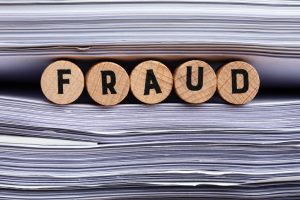 Three Adobe employees filed False Claims Act lawsuits exposing the scheme and will share a $555K whistleblower reward.
Three Adobe employees filed False Claims Act lawsuits exposing the scheme and will share a $555K whistleblower reward.
Adobe Inc. (NASDAQ: ADBE) has agreed to pay $3 million to resolve allegations that it violated the False Claims Act by paying illegal kickbacks to software-reseller partners in return for their promotion of the company’s products to government customers.
The U.S. government was fraudulently tricked into purchasing unnecessary software licenses, the U.S. Department of Justice alleged. It was also allegedly deceived into purchasing software bundles containing applications it never requested, and fraudulently billed for software licenses for the personal use of government employees on their home computers.
 The Whistleblower & Anti-Fraud Blog
The Whistleblower & Anti-Fraud Blog



 In separate lawsuits, the government alleged that two for-profit education companies defrauded a tuition assistance program for military veterans.
In separate lawsuits, the government alleged that two for-profit education companies defrauded a tuition assistance program for military veterans. A medical device sales representative who filed the False Claims Act lawsuit received a $1.37 million whistleblower award.
A medical device sales representative who filed the False Claims Act lawsuit received a $1.37 million whistleblower award. A postdoctoral research staff member discovered the fraud and filed a whistleblower lawsuit under the qui tam provisions of the False Claims Act.
A postdoctoral research staff member discovered the fraud and filed a whistleblower lawsuit under the qui tam provisions of the False Claims Act. th Korean conglomerate
th Korean conglomerate  The technology firm was found to have knowingly included false pricing, rebate, and discount information in disclosures to become a GSA Schedule contractor.
The technology firm was found to have knowingly included false pricing, rebate, and discount information in disclosures to become a GSA Schedule contractor. International Vitamin Corp. allegedly violated the False Claims Act by misclassifying imports from China as “duty free.”
International Vitamin Corp. allegedly violated the False Claims Act by misclassifying imports from China as “duty free.” The hiring of the subcontractors by Vescent Photonics allegedly violated conditions on the use of Small Business Innovation Research (SBIR) grant funding.
The hiring of the subcontractors by Vescent Photonics allegedly violated conditions on the use of Small Business Innovation Research (SBIR) grant funding. High Life LLC allegedly reported phony “first sale” prices on import declarations filed with CBP.
High Life LLC allegedly reported phony “first sale” prices on import declarations filed with CBP. The fraud was discovered by a medical office manager who filed a whistleblower lawsuit under the qui tam provisions of the False Claims Act.
The fraud was discovered by a medical office manager who filed a whistleblower lawsuit under the qui tam provisions of the False Claims Act.